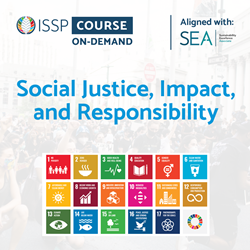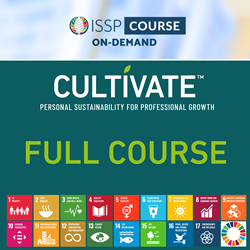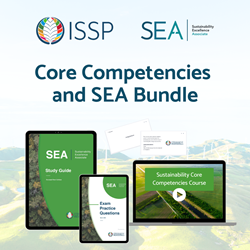Social Justice, Impact, and Responsibility Course
On-Demand Courses
This module looks at how three concepts of social sustainability (basic human needs, equity, and human rights) apply to a variety of stakeholder groups. Both individual enterprises and communities collectively are working to address these issues and are using diverse social sustainability indicators to help build and implement successful sustainability strategies.
Common social performance indicators for enterprises include such concerns as diversity, income inequality, workplace health and injury rates, and the labor practices of suppliers. Common government indicators, on the other hand, include poverty rates, school enrollment rates, and access to healthcare.
The content of this video is based on Chapter 2 of the SEA Study Guide and can be used as preparation for the SEA exam. This course is a tool to help you study for the exam, but completion of the Sustainability Core Competencies course does not guarantee passing the SEA exam. [Read disclaimer.]
Access to this course will be available for 1 year from date of purchase.
This course module is presented in seven sections, approximately one hour:
- 2.1 Introduction - Learn why social justice and social impacts are critical to the principle of sustainability.
- 2.2 Stakeholders- Understand how to engage stakeholders impacted by the organization’s activities.
- 2.3 Employees - Understand how to engage employees and maintain job satisfaction through knowledge of child and slave labor prevention, workplace health and safety, livable compensation, employee ownership, employee engagement and work-life balance, and education and training.
- 2.4 Customers - Understand how to respond to customers and constituents needs and deliver value and quality to them as stakeholders.
- 2.5 Suppliers - Understand how to engage suppliers through holding manufacturers and supply chain management responsible for ethical sourcing and fair trade.
- 2.6 Future generations - Understand how to engage future generations through encouraging youth activism and inter-generational responsibility.
- 2.7 Conclusion - Review module 2 concepts to understand how business can incorporate a broad definition of stakeholders, beyond those who invest financially.
Course participants will take one quiz at the end of this module, approximately 10 questions each.
Following the successful completion of the course, students will receive a Certificate of Completion, indicating knowledge of core sustainability concepts and best practices.
The completion of the full Sustainability Core Competencies course earns 5 Continuing Education Units (CEU) for SEA and SEP credential holders, and the completion of this module alone earns 0.5 CEU credits.
ISSP is not able to offer refunds once you have purchased access to your course, resource, or membership for any reason, including change of personal financial standing, health, or inability to access to our site. If you are dissatisfied with your purchase or are otherwise unable to access your purchased product/service in its entirety, you may read our FAQs or reach out to technical support.
When purchasing a product/service from ISSP, you agree and understand that changing your mind about the product/service, failing to follow through or understand the details of the purchase, not experiencing the results expected or desired, or experiencing any other similar situations does not entitle you to a refund.
Important ⚠️ You must login or create a free account before purchasing courses/study materials. Your course access is tied to your account.




